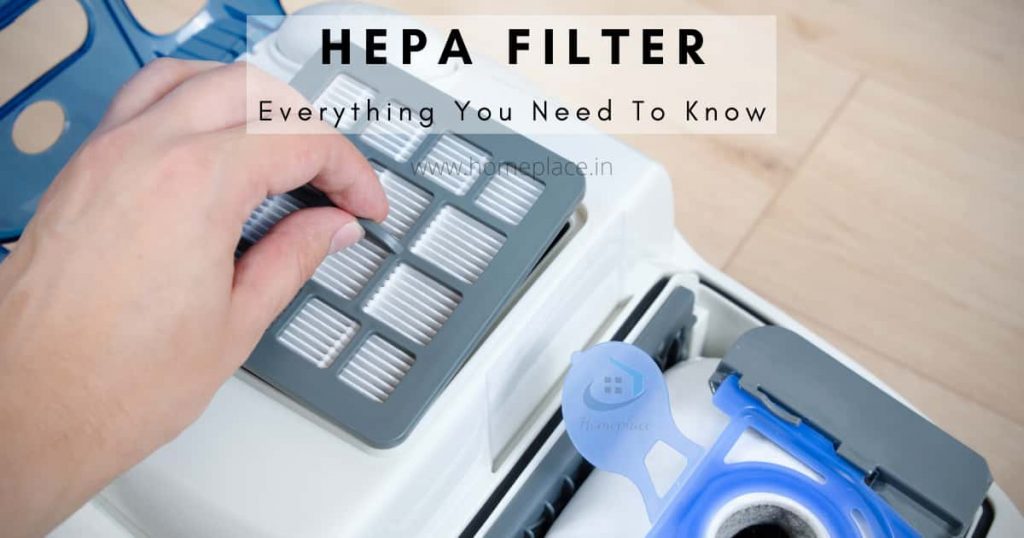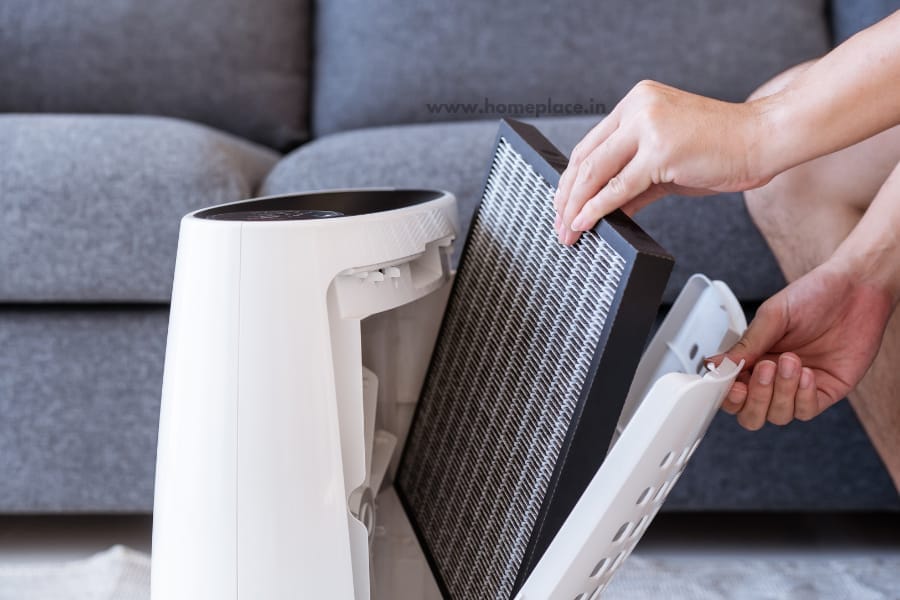Who doesn’t want to breathe some fresh air?
However, with the rising level of pollution in the world, fresh air is becoming scarce. This is where technology steps in with the HEPA filters.
But what is a HEPA filter?
The full form of HEPA stands for High-Efficiency Particulate Air. As the name suggests, the filters work by getting rid of unwanted particulates from the air. As such, it is pretty sought after by consumers today.
Let’s not mistake HEPA for an existing brand that manufactures the filters. It is more of a rating for filters that meet a certain standard. First conceptualized in 1940, HEPA-rated filters are very efficient at their job, getting rid of 99% of the particulates.
You will find different types of HEPA filters in the market. Based on their efficiency, they have different levels of rating. When attached to household appliances, the filters purify the air of the room. The likes of these appliances include air conditioners, air purifiers, vacuum cleaners, etc.
A HEPA filter eliminates 99% of smoke, pollen, dust, pet dander, etc., from the air at its peak performance. To be precise, all particulate with a diameter of 0.3 microns are effectively removed. This includes harmful bacteria and germs as well.

Types of HEPA filters
As mentioned before, HEPA is a rating based on the efficiency of a particular filter. Hence, there are different levels of it. These levels range from type A to F. Before we learn about these, let’s get a few things out of the way.
In the market, you may find filters rated “HEPA Type” or “HEPA Like.” Such products are only faulty and less efficient. The rating confuses the customers and tricks them y=into purchasing the models. But honestly, such products are not worth your money.
Filters rated as “True HEPA” or “Medical grade HEPA” are the most efficient ones.
- Medical Grade HEPA is rated as either H13 or H14. The H14 variant removes 99.995% of the particulates, while the H13 removes 99.95%.
- True HEPA is rated from H10 to H12. The efficiency of each variant increases gradually.
If these types sound confusing, there is a simpler scale. HEPA filters are also differentiated from Type A to Type F. The F variant is the most efficient by getting rid of 99.999% of the 0.1-0.2 micron particulates. The A variant is not recommended for use.
Based on your requirements, you need to choose the ideal HEPA filter type. To get a more efficient performance, select Medical Grade HEPA filters or Type-F HEPA filters.
Uses of HEPA filters
HEPA filters have a variety of uses. The likes of these uses range across multiple sectors and industries. In this section, we are going to surf a few of them.
1. HEPA filter use in the medical sector
One of the most common uses of HEPA filters is in the medical sector. Hospitals must have pure and fresh air. It ensures an overall healthy environment of the place.
Here, HEPA filters are effectively used in different appliances. The most common one being vacuum cleaners. The filters remove all the unwanted and harmful germs and bacteria from the air. Being of medical-grade type, 99.99% of these particulates are efficiently handled.
The usage of HEPA filters also benefits incubators and warming beds. By ensuring fresh air, both the newborn and the patient breathe easily. Even medical laboratories use HEPA filters to remove harmful pathogens from the air.
2. Use of HEPA filter at homes
Unwanted matter in the air of your home can worsen your allergies (if any). Furthermore, people who have asthma might find it difficult to breathe in unpurified air. This is where the HEPA filter steps in.
HEPA filters are available for home appliances like vacuum cleaners and air purifiers. The air in your home has germs, bacteria, smoke, etc. If you own a pet, pet dander is also common in the air. Vacuuming your floor using the HEPA filter and purifying the air get rid of such particulates.
HEPA filter for air purifier
Air purifiers equipped with HEPA filters are available easily in the market. You can use them to purify the air of your rooms and even your cars. Most of these air purifiers use True HEPA-grade filters.
The capacity of a HEPA filter for an air purifier varies with every model. You can find your ideal capacity based on the dimensions of the purifying space. Rest assured, all dust, dirt, pollens, etc., are effectively handled using the filters.

Advantages of HEPA filter in air purifiers
Let us have a look at some of the benefits of using a HEPA filter for purifiers.
- An air purifier equipped with a HEPA filter is cheaper than an air conditioner. Hence it is a more budget-friendly alternative for purifying the air.
- You can place the machine anywhere in the room as per your requirement. The portable nature and small size of these air purifiers are movable from one room to another.
- A HEPA filter is present in the air purifier at the time of purchase. Cleaning options are also available for the same. There is no need to buy and install the filter separately.
Useful Tips
- Do not buy an air purifier with the highest grade HEPA filter. Much like the AC, it will restrict the airflow and make it difficult to breathing.
- When the air purifier is operating, please do not move it frequently. Let the machine settle down and do its job.
Philips AC1215/20 Air Purifier is built with a true HEPA filter that can purify nano and ultrafine particles with sizes of 0.3 and 0.002 microns for an area up to 63 square meters. It produces very little noise as 33 dB. With a warranty of 2 years, this air purifier is worth buying.
HEPA filter for vacuum cleaner
Vacuum cleaners are the most common devices to use HEPA filters. Regular vacuuming of the floors and carpet ensures your home is fresh and germ-free. But there are a few things to keep in mind as well.
Firstly, let’s understand how a HEPA filter for a vacuum cleaner works. After you start vacuuming using the filter, the germs get sucked into the vacuum bag. The larger ones are stuck on the fibers. Since the filters remove particulates up to 0.3 microns in diameter, the cleaning is sufficient. Most of the best wet and dry vacuum cleaners have an inbuilt HEPA filter.
Benefits of HEPA filter in a vacuum cleaner
Using a HEPA filter for vacuum cleaners also has certain benefits. Some of them are as follows.
- While a HEPA filter in the AC purifies the air, the filter in a vacuum cleaner purifies the floors. Regular cleaning removes all harmful bacteria and germs from the carpets and floor.
- You can clean the drapes as well. By using the vacuum cleaner in the correct settings, drapes can become free of germs.
Useful Tips
The following tips come in handy when using a HEPA filter in your vacuum cleaner.
- Never use a HEPA filter in a bag-free vacuum cleaner. The dirt and germs get stuck in the filter itself in such cases. As such durability of the filter is decreased.
- HEPA filters need cleaning once every few months. Remember to check on the filters and replace them if necessary.
- It is best to use medical-grade HEPA filters for a vacuum cleaner. The cleaning is more efficient, and space will become as fresh as new.
American Micronic Wet and Dry Vacuum Cleaner is one of the finest vacuum cleaners with HEPA filters available in the market. This product does not only clean dry surfaces but also useful for wet floors. It has a powerful suction capacity with a 1600-watt motor and a 15 L waste storage capacity.
HEPA filter for air conditioner
It’s not recommended that you install a high-grade HEPA filter directly into your air conditioner. In purifying the air, the filters might restrict most airflow, whether it is a split, window AC or portable air conditioner.
In such a scenario, a significant pressure imbalance is created in the room. This can worsen allergies and make it difficult for you to breathe. So what is the solution?
To use a HEPA filter for the air conditioner, connect it using a bypass duct. This will purify a small amount of air at a time. Immediately after the purification is complete, the air is released back into the primary airflow. The chances of a pressure imbalance are significantly reduced, and you will be able to breathe normally.
Advantages of hepa filter in air conditioners
Using a HEPA filter for your air conditioner has advantages. Some of them are listed below.
- Getting the air of your room purified using the HEPA filter gets rid of the unwanted harmful particles. It makes it significantly more comfortable for you to breathe and overall improves your family’s health.
- People suffering from allergies and asthma can live peacefully in purified air. There are significantly low risks that the complications will get triggered.
- HEPA filters also remove tobacco smoke and foul odor from the air. After the purification is done, the space is as fresh as new.
Tips and Recommendations
The following tips will come in handy when you are using a HEPA filter for the air conditioner.
- Although HEPA filters are highly rated in their work, it is best to check on them. Once a month, check the condition of the filters and clean them. Harmful particulate matter of larger size gets stuck on the fibers. A little manual effort will effectively get rid of them.
- As mentioned before, do not attach the HEPA filter directly to your air conditioner duct. Use a bypass duct instead. It is also applicable to tower air conditioners. This setup will circulate the airflow and prevent any pressure imbalances. Many hot and cold air conditioners come with some good filters that can purify the air better.
Also Read: Best 1.5 ton AC in India
Right from inception, HEPA filters have revolutionized lives. Today, more than ever, it is a crucial appliance to own. Although the highest graded ones are a bit expensive, rest assured, they are worth every penny spent.
This article provides you all the necessary information regarding HEPA filters. Before buying one, go through the information for the best buy. Each one of us deserves to breathe in the fresh air. Let’s make that a reality.
Related Posts:
